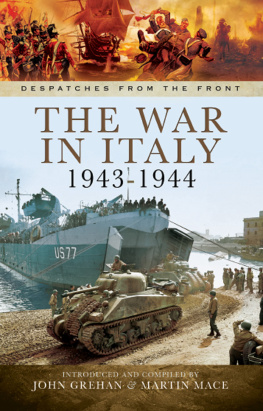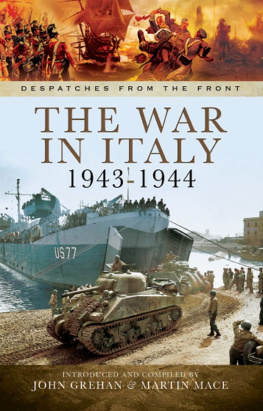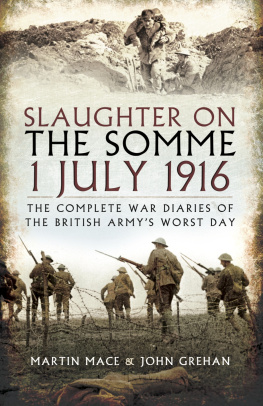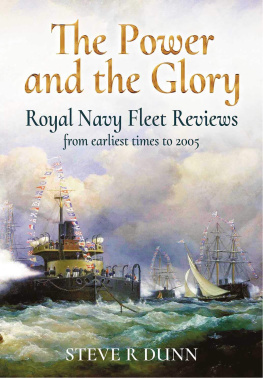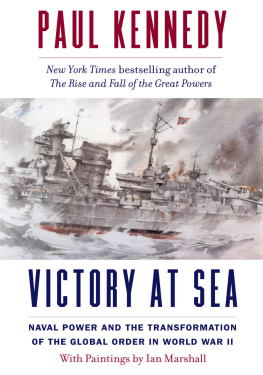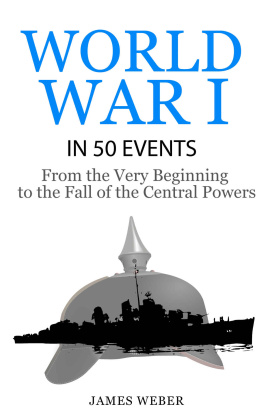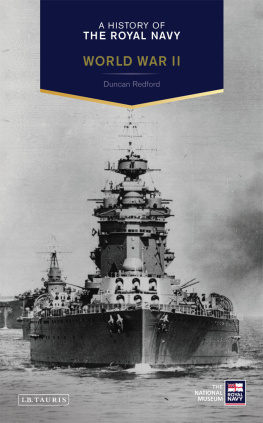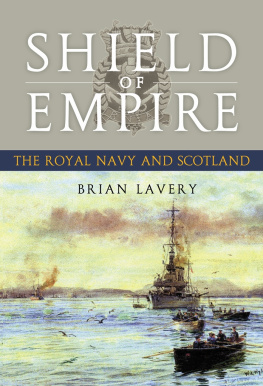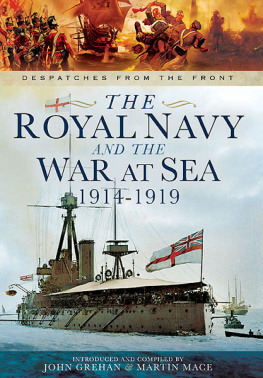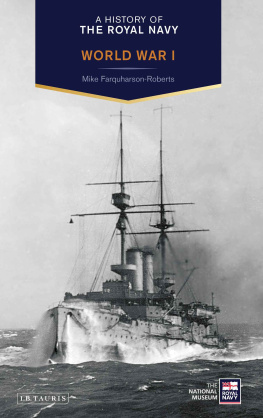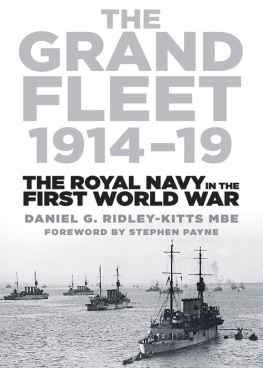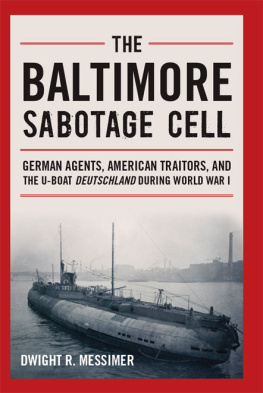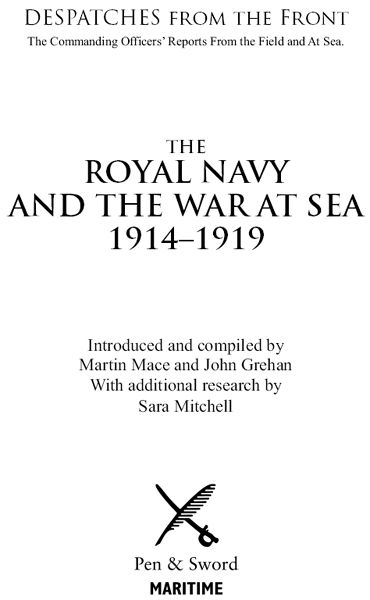
First published in Great Britain in 2014 by
Pen & Sword Maritime
an imprint of
Pen & Sword Books Ltd
47 Church Street
Barnsley
South Yorkshire
S70 2AS
Copyright Martin Mace and John Grehan, 2014
ISBN: 978 1 78159 317 2
EPUB ISBN: 978 1 47384 645 6
PRC ISBN: 978 1 47384 634 0
The right of Martin Mace and John Grehan to be identified as Authors of
this Work has been asserted by them in accordance with the Copyright,
Designs and Patents Act 1988.
A CIP catalogue record for this book is available from the British Library.
All rights reserved. No part of this book may be reproduced or transmitted
in any form or by any means, electronic or mechanical including
photocopying, recording or by any information storage and retrieval
system, without permission from the Publisher in writing.
Printed and bound in England by CPI
Pen & Sword Books Ltd incorporates the Imprints of Pen & Sword
Aviation, Pen & Sword Maritime, Pen & Sword Military, Wharncliffe Local
History, Pen and Sword Select, Pen and Sword Military Classics and Leo
Cooper.
For a complete list of Pen & Sword titles please contact:
PEN & SWORD BOOKS LIMITED
47 Church Street, Barnsley, South Yorkshire, S70 2AS, England
E-mail:
Website: www.pen-and-sword.co.uk
C ONTENTS
I NTRODUCTION
The First World War is principally remembered as a land war, and this is because the Royal Navy was so dominant that the German naval threat was quickly and efficiently neutralised. Indeed, in some respects it was because of the Royal Navys supremacy at sea that war between Britain and Germany at some point in the early twentieth century was inevitable.
The might of the Royal Navy had been emphatically displayed at the famous Spithead Review of 1897. The ships reviewed by Queen Victoria had stretched for five miles and included twenty-one battleships, forty-two cruisers, thirty destroyers and seventy-two other craft. Staggering though these numbers were, they represented only half of Britains navy. The absent craft, 165 in total, were guarding the British Empire which, by the end of the nineteenth century, encompassed a quarter of the globe.
In stark contrast to this naval might the new major European power, Germany, could count only sixty-eight ships in its fleet. If Germany was ever to rival Britain in world affairs it needed a comparable naval force, and a huge warship-building programme was put in hand. Britain, acutely aware of German intentions followed with the building, in 1906, of the mightiest battleship the world had seen HMS Dreadnought.
Faster, more heavily armed and armoured than any preceding battleship, HMS Dreadnought was so superior to any other warship that all others were instantly rendered obsolete. But it also meant that Britain was now only one ship of any importance ahead of Germany. As a result an arms race on an unprecedented scale ensued between the two countries. At the outbreak of war in 1914 Germany had built an impressive fleet of battleships, but she still lagged behind the UK, especially with regards to smaller warships.
The objective of the Royal Navy during the war was to blockade the German ships within their own harbours. By contrast, the Germans sought to entice a part of the numerically superior Royal Navys Grand Fleet into action with its High Seas Fleet. As the German battle squadrons awaited their opportunity to strike, operations were conducted with smaller craft and the first naval engagement took place in the Heligoland Bight off the German coast when a large British destroyer force engaged a much smaller German patrol. The Germans lost six ships, including three cruisers with another six ships damaged.
The Battle of Heligoland Bight immediately established the Royal Navys dominance, the Germans being restricted to coastal operations and attempts at disrupting Britains maritime trade with submarine and surface raiders. The latter included the SMS Knigsberg, which operated off German East Africa, and SMS Emden, which was one of the most successful surface raiders of all time having captured seventeen British or neutral merchant ships in the Indian Ocean before she ran aground after being engaged by HMAS Sydney in November 1914.
Another notable action in the early stages of the war was the Battle of the Falkland Islands. A German cruiser squadron which had defeated a Royal Navy squadron at the Battle of the Coronel, off the coast of Chile, was tracked down by a larger British squadron near the Falkland Islands. The resulting battle cost the Germans two heavy and two light cruisers and two supporting transport ships.
The Battle of the Falkland Islands confirmed the Royal Navys superiority and no more German squadrons were permitted to take to the high seas. Until the two great navies met at the Battle of Jutland in 1916, the Imperial German Navy limited its operations to submarine warfare and the laying of mines, though still hoping to draw part of the Grand Fleet into the guns of its battleships.
The German plan almost succeeded at the end of May 1916 when the High Seas Fleet engaged one of the Grand Fleets battle cruiser squadrons off Jutland on the Danish coast. Admiral Sir John Jellicoes subsequent report on the Battle of Jutland is, as would be expected, one of the longest despatches in this compilation. This battle was the only opportunity of the war for the Grand Fleet to strike a decisive blow against the German navy; it was one that was squandered.
Jellicoe was criticized for failing to press home his attack in the traditional fashion of the Royal Navy. Nevertheless, both sides claimed victory, though in reality, neither side achieved what they desired. In his despatch, completed more than three weeks after the battle, Jellicoe wrote: A review of all the reports which I have received leads me to conclude that the enemys losses were considerably greater than those which we had sustained, in spite of their superiority, and included battleships, battle-cruisers, light cruisers, and destroyers.
Later it was learnt that it was Jellicoe who commanded a considerably greater force than admirals Scheer and Hipper and that the Royal Navy lost far more ships, and almost three times more men, than the German High Seas Fleet.
The main defensive formation on Britains east coast throughout the war was the Dover Patrol. Based at Dover and Dunkirk, it was originally formed in July 1914 with a number of old destroyers and developed into a powerful and important force which included a wide range of vessel types, as well as seaplanes, land-based aircraft and airships. Its functions were correspondingly varied, but included anti-submarine patrols, minesweeping, the sowing of mines, escorting transports and merchantmen, as well as bombarding the German Army positions close to the Belgian coast.
The Dover Patrol also helped conduct raids against Ostend and the famous Zeebrugge raid of April 1918. Eight Victoria Crosses were awarded for the attempt at blocking the canal exit at Zeebrugge, yet as Vice Admiral Roger Keyes wrote in his despatch: It seems almost invidious to mention names when every officer and man who took part was animated by one spirit, ardently welcoming the opportunity of achieving a feat of arms against odds in order that honour and merit might be added to that which our Service has gained in the past. Of the 1,700 men involved in the Zeebrugge operation, 300 men were wounded while more than 200 were killed.
The eclectic nature of the Royal Navy despatches is exemplified by one of the earliest in this volume that relating to the defence of Antwerp in 1914. Also referred to the Siege of Antwerp, this land action, sometimes criticised as a foolhardy gesture, drew in men from the Royal Marines and Royal Navy.
Next page

